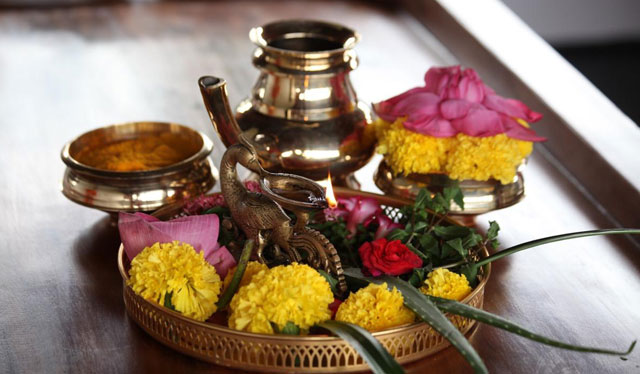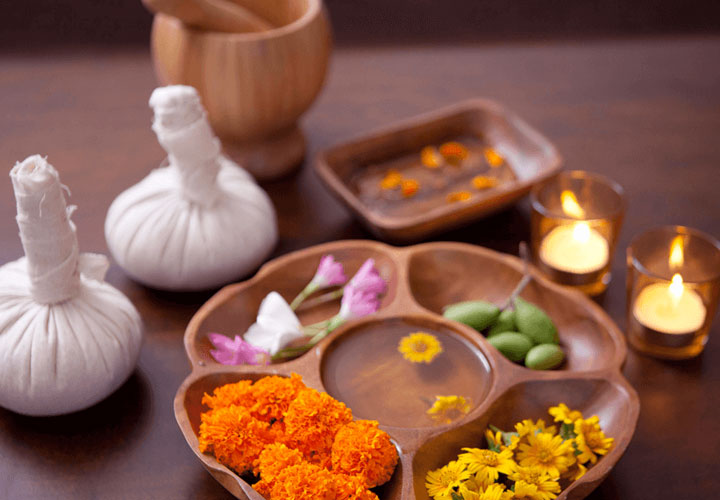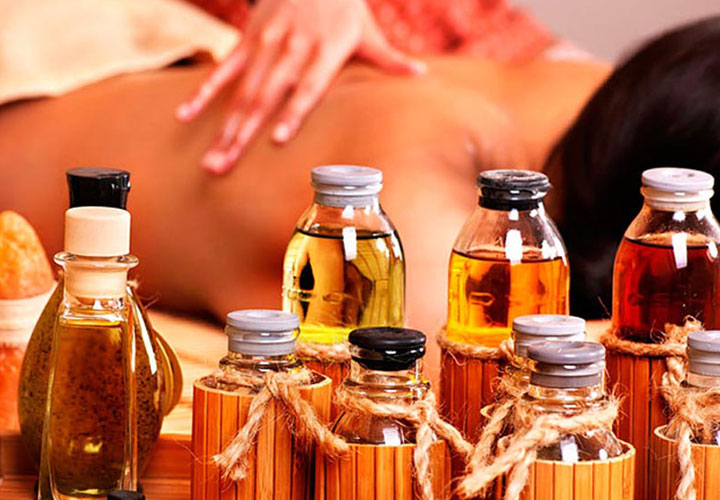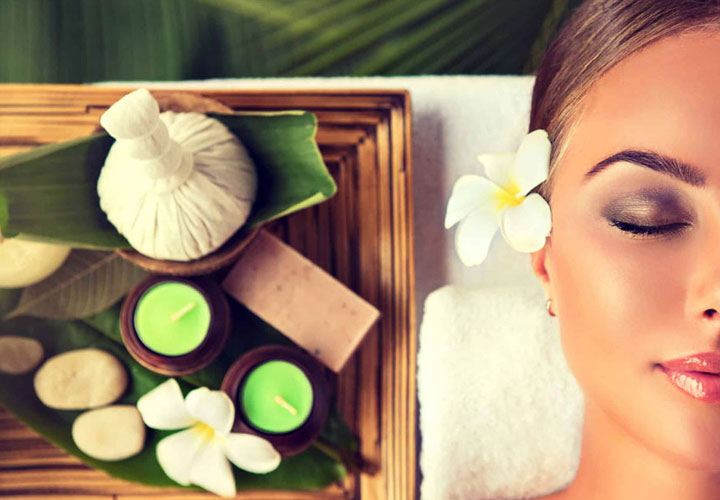Stress is good if one properly copes with the demands. It helps to improve our performance and efficiency at work or in life. It makes us more alert in the activities indulged in. This bring out satisfaction, excitement and fun at work. But stress is bad when one is not able to cope with the demands due to the physical, mental and emotional resources. Chronic unmanaged stress leads to chronic illness at various levels. This results in physical, mental and emotional disorders. As per Ayurveda, the chronic stress vitiates the doshas. Vitiated doshas slowly affects the normal functioning of tissues and organs. It also slows down the metabolism resulting in the formation of aama( metabolic toxins) in the tissues and organs. Later this cause lack of immunity, various disorders in the organs and infectious diseases. Stress can affects the various organ systems of our body. Stress cause an imbalance in the various organ systems such as immune system, digestive system, respiratory system, muscular system, nervous system and endocrine system. It can also affects sex and reproduction of humans. In Ayurveda management, we prefer to avoid stress causing factors.Vata shaman therapies like shirodhara,abhyangam,shirovasti can be practiced. Detoxification or panchakarma therapies should be practiced.For patients with severe stress, can practice yoga therapy satsanga and counselling.
Prolonged exposure to stress can cause hyper tension and depression.
As per Ayurveda stress inducing factors can be classified as physical stress or psychological stress.
However in todays world stress is an inevitable companion of success, therefor avoiding stress is always not a practical solution. The best practical solution for this is improving the coping capacity of our body towards stress. As per Ayurveda the stress management can be done by life style changes,dietary interventions and drug treatment. All these are well organized under Rasayana treatment. is one of the eight branches of classical Ayurveda. Susruta and Charaka shares the same view about rasayana treatment. They define it as a branch of Ayurveda that improves the physical and mental health along with longevity. Rasayana therapy is a multidimensional approach which is not purely drug oriented. Instead drug is only an aspect of this approach. Other than drugs rasayana therapy includes dietary regimens and code of conduct. Acara rasayana isissts a balanced use of sense organs, non violence and a routine free from stress. Ajasrika rasayana insists on the importance of taking a balanced and nutritious diet. A balance diet is the food which contains all six rasas. A balanced diet contains all six rasas modified according to the climate,environment,season age and constitution of the individual. For getting the maximum benefit of rasayana therapy one should take care of acara rasayana, careful about the diet and take the drugs for stress reduction.Rasayan therapy helps to improve ojas,the essence of all dhathus.
Along with Ayurveda treatment yoga therapy also should accompany the treatment process. Yoga aims to encourage positive health through the development of inner natural powers of body and mind by various eliminative process that reconditions the body and mind.Yoga is for everyone but little modification of the asanas as per the physical conditions and other associated health problems need to be considered. Savitri,nadisudhi, and bhramaripranayama are excellent to reduce stress. Anjali mudra helps to relieve stress, anxiety and mental disorders.
According to Ayurveda, the strength and quality of ones mental state determines one’s health as one’s vulnerability to disease.The first and foremost sloka of Ashtanga Hridaya points this out affirming that all the diseases starts from a disturbed mental state. Ayurveda recommends a holistic approach to manage and heal anxiety disorder through diet, herbal medicines, massage therapies along with yoga and meditation. Anxiety is not a problem of your barin, this is the problem of your mind. There are different manifesations of day to day stress from the perspective of Ayurveda. They are mental, physical and emotional manifestations and each requires different approaches and therapies.
According to Ayurveda, mental stress is caused by imbalance of vata dosha, which regulates brain activity, energy and mind.As a result the individual loses ability to handle day to day problems.The person’s mind becomes hyper active to think positively to feel enthusiastic and even to fall asleep at night. To correct this imbalances it is imporatant to favour vata balancing foods, with sweet,sour and salty tastes and to include warm milk and light dietary products.
Emotional stress is caused by an imbalance of the pitta dosha and manifest itself as irritability, depression, and emotional instability.To achieve the balance of pitta dosha, have plenty of sweet juicy fruits and foods with sweet, bitter and astringent tastes.
Physical stress is caused when the balance of both kapha and vata is disturbed. To balance kapha and vata a person should get adequate exercise and moderate rest
Ayurveda describes about a number of herbs for their ability to foster clarity and health. These herbs re effective for anxiety as well as issues related to anxiety. Ashwagandha is one among them which is regarded as an adaptogen. Ashwagandha encourages quality energy through out the day and good sleep at night. Brahmi is another herb renowned for its ability to balance the nervous system and the mind. Its a relaxing tonic for pitta and calm vata in the mind. Chamomile is a natural sedative and good for mild anxiety. Fennel seeds are used for the treatment of some of the common symptoms of anxiety including digestion and asthma. Passion flower is also considered good for mild to moderate anxiety. It reduces muscle tension and insomnia and calm down the nerves. Vale.rian root is an incredible effective sedative. It is effective at soothing muscles and reducing mental and physical tension
In addition to herbal suppliments, there are several breathing exercises, alternate coping strategies,diets and physical exercises that are effective for anxiety. Some people also find relief by reducing their ingestion of stimulants and alcohol. Drinking more water may also be effective.Yoga asanas which are effective in stress management are Hala Asana,Shava Asana and Anulom-vilom.
The aim of panchakarma is to remove toxins from the body as well as to nourish and relax. It removes the negative energy that triggers stress. The most effective therapies for stress management are
A steam bath is given after most of the treatments.
In general Ayurveda helps a person to get a better understanding of
themselves and the world around.During the treatment Ayurveda diet is given to counteract the stress releasing chemicals.Thus by adopting a healthy lifestyle, Ayurveda helps people to reduce stress.
When a client comes to our place, on the first day itself we start with an introduction about the basics of Ayurveda and a detailed consultation for about one hour. A typical ayurvedic Consultation includes pulse diagnosis and Desa vidha pareeksha( Dusya – vitiated tissues and waste products, Desa – Habitat of the client, Bala – strength of the disease or client, Kala – Season, Anala – Digestive activity, Prakruthi –Constitution, Vaya – Age, Satva – Mind, Satmya – Accustoms, Ahara – Food habits)
After this detailed consultation on the same day the client will get an Abyangam for an hour, that depends on his body condition or his state of health also he will get an individual food plan with herbal tea and individual treatment programme
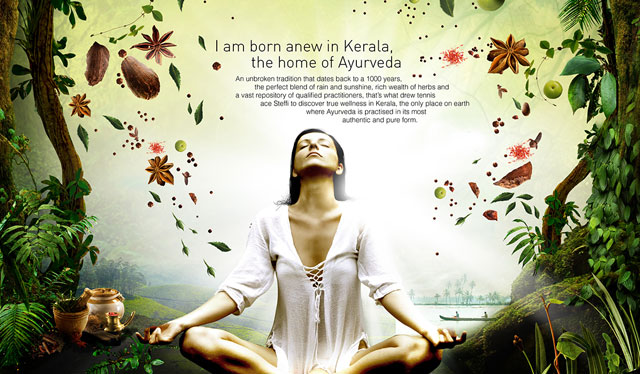

Before going to the treatment the client will get checked his blood pressure with the doctor and he may get the treatment for about 90 minutes
After doctors consultation before going to the treatment, he may get different treatments like Abyangam with kizhi or Powder massage, or kadeevasthy or snehapanam etc will be there, that’s all depends on the dosha dominance or depends on the condition of the patients
This part of the treatment, the phase 1 is to prepare the body for purification.
So why we have to prepare the body for purification?
Because the toxins are situated in the different parts of the body or in deep inside the tissues, so with those treatments like Abyangam and Kizhi (oiletaion and fomentation) the toxins which are situated in different parts of the body will move to the stomach and then with appropriate orifices we have to eliminate the toxins
The main Panchakarma therapy will be done, thats depends on the dosha or depends on the condition of the body. It can be purgation with different medicines or different types of Vasthi.
During this day, you are allowed to take only very light food and warm food (Rice soups or other soups – depends on doshas)
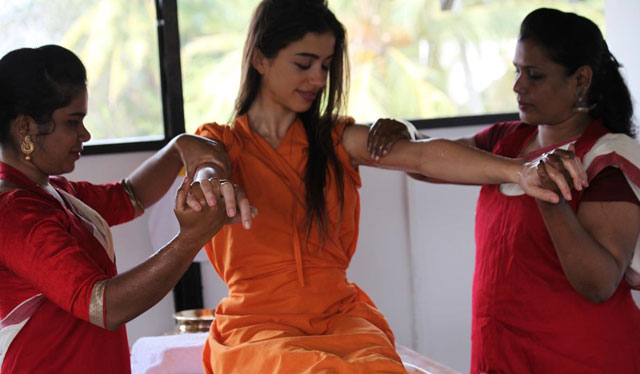
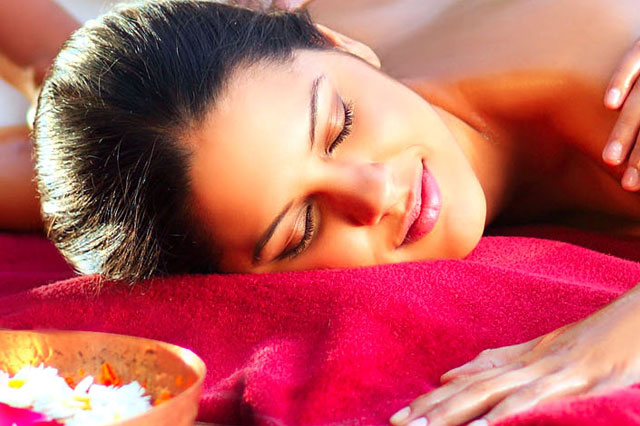
The next Five days are considered as phase 2, In this period mostly the client may get Kayasekam and Siro dhara, this kind of treatment is also usually to bring the toxins out of the body or in some cases it will act as a main treatment to get digested the toxins within the body itself.
The next three days are considered as phase 3, in this period after cleansing the body we have to rejuvenate the body with different treatments like Shastika panda sweda and all
During these 14 days Clients should strictly follow the Pathyas (restrictions)
Only very light and warm food is allowed, Only warm water for drinking and bathing
No coffee and Black tea
No Non veg food (meat – All types, Fish and eggs)
No Alcoholic drinks
No exertion (mentally and physically)
No Day sleep
Detailed individual food programme will be given to follow it in home, after the cure
